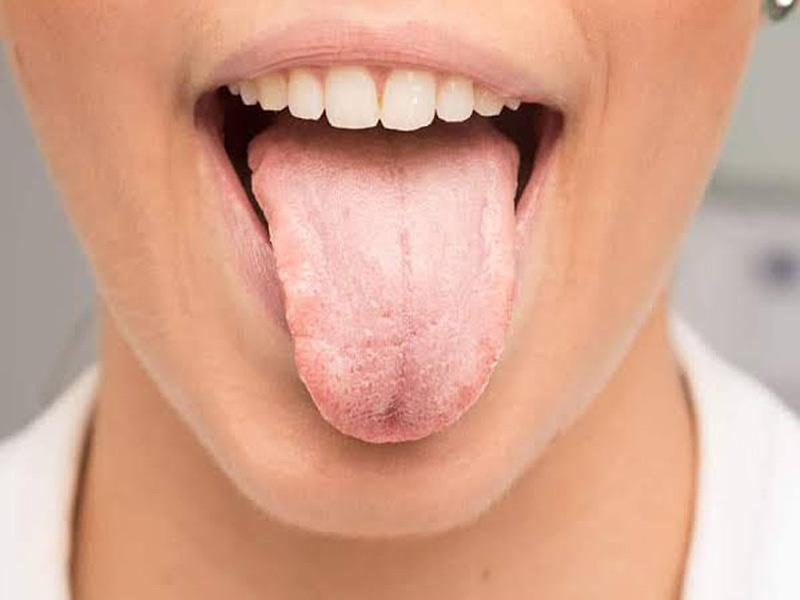
Dry mouth, or also called xerostomia is a condition in which the salivary glands in your mouth are not able to produce enough saliva to keep your mouth wet. Dry mouth usually occurs because of the side effect of certain medications or ageing problems or as a result of radiation therapy treatment for cancer. In some cases, dry mouth can be caused by a condition that directly affects salivary glands. Onlymyhealth editorial team spoke to Dr. Vijay Kumar Sharma, Consultant - Ent & Head Neck Surgeon, Manipal Hospital, Kharadi, Pune, about the symptoms, causes and treatment of dry mouth.
Table of Content:-
Saliva plays a major role in preventing tooth decay by neutralizing acids produced by bacteria, restricting bacterial growth and flushing out food particles. Saliva also improves your tasting ability and makes it easier to chew and swallow. Moreover, enzymes in saliva are a friend for the digestion process. Less saliva and dry mouth can range from mild to being an enemy for your overall general health. It can even affect your teeth and gums, appetite and food. Read on to know more about the condition.
Dry mouth symptoms

If you are not producing enough saliva, then you will surely notice a specific set of signs and symptoms or some of then most of the time. According to Dr. Vijay, here are the main signs of dry mouth:
- Dryness or stickiness in the mouth
- Difficulty in chewing, speaking and swallowing
- Bad breath
- Dry or sore throat
- Hoarse voice
- Dry or groovy tongue
- Different sense of taste
- Thick and stringy saliva
Also read: If You Have Dry Mouth, Do Not Take It Casually
Dry mouth causes
Dry mouth is mostly caused when the salivary glands in your mouth do not produce enough saliva to keep your mouth wet. As per Dr. Vijay, these glands might not function properly because of:
- Ageing
- Certain medications
- Nerve damage
- Cancer treatment
- Usage of tobacco and alcohol
- Other health ailments (stroke, diabetes, oral thrush, etc)
Dry mouth diagnosis and treatment

To diagnose and know the cause of your dry mouth, the expert will ask about your medical history and all the medications you are on, including over-the-counter medications, and examine your mouth properly. At times, you may need blood tests, imaging scans of your salivary glands. There are tests that measure how much saliva your mouth is producing to identify the exact cause of your dry mouth. If your doctor detects the cause of your dry mouth and it is Sjogren's syndrome, then a biopsy taken from the salivary glands in your lip might be required for further testing.
Your treatment depends on the cause of your dry mouth. The common treatment options for dry mouth include:
1. Moisturize mouth
Moisturizing your mouth might be the first preferred treatment for dry mouth. These can include prescription or over-the-counter mouth rinses, artificial saliva or moisturizers to hydrate your mouth. Mouthwashes specially designed for dry mouth can be extremely effective. They can also offer protection against tooth decay.
Also read: What Is Sjögren’s Syndrome? Here's Everything You Should Know
2. Change medicines
If your doctor says that certain medications are a major cause behind dry mouth, then the treatment method would be moderating your dosage or giving you another medicine that is suitable and does not cause a dry mouth.
3. Protecting teeth
Protecting your teeth is important to treat the underlying cause of dry mouth. To control cavities, the doctor of dentist may fit you for fluoride trays, which is then filled with fluoride to wear on your teeth overnight. He/she might also advice you to use it weekly and rinse to prevent cavities.
4. Medication
Your doctor might also prescribe medicines that can stimulate saliva production. This option is mostly used in cases of severe dry mouth. In patients with mild symptoms, even simple lifestyle changes and home remedies can help in coping up with this condition.
Also watch this video
How we keep this article up to date:
We work with experts and keep a close eye on the latest in health and wellness. Whenever there is a new research or helpful information, we update our articles with accurate and useful advice.
Current Version